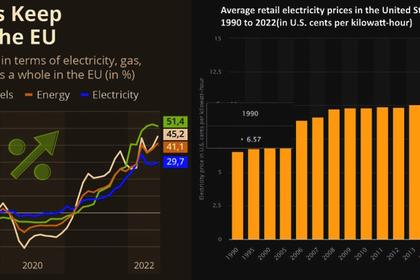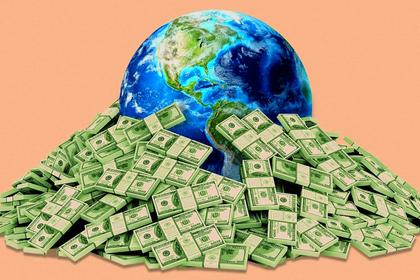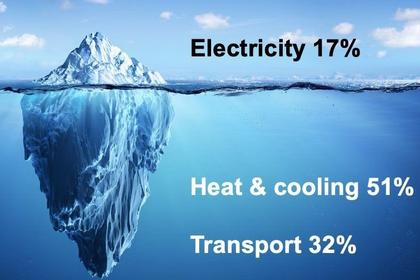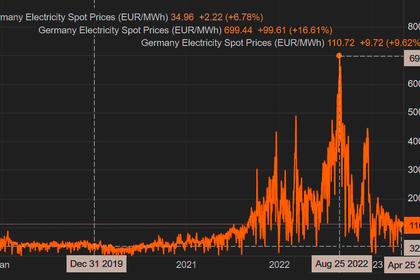
GLOBAL NET ZERO FAIL
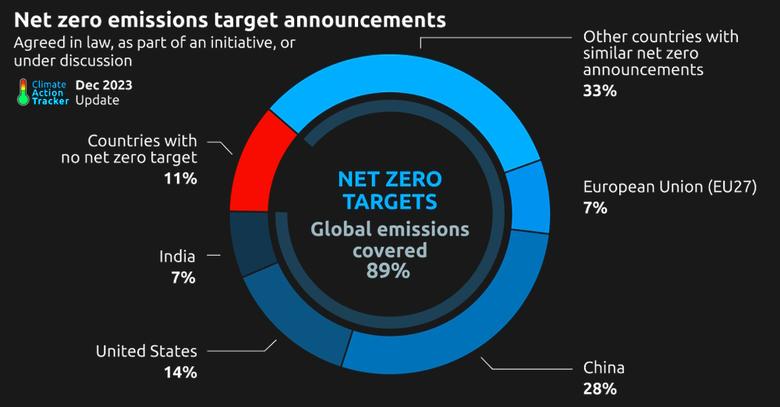
By BRYAN LEYLAND Consulting Engineer, LCL Ltd
ENERGYCENTRAL- Feb 26, 2024 - Virtually every “net zero by 2050” initiative is doomed to failure. What will happen then?
When all the costs are included electricity from wind and solar power is very expensive. The main problem is that the wind doesn't blow all the time and sometimes there is little or no wind for a week or more. Solar power goes off every night, and is seriously reduced during cloudy days. The reality is that large-scale wind and solar power cannot exist without large-scale, long-term low-cost energy storage. There is no technology that can provide this. Until it is discovered, the cost of backup from inefficient open cycle gas turbines will continue to make wind and solar power unaffordable.
To give some idea of the scale of the problem, the cost of batteries would need to reduce by a factor of 20 or more for solar or wind power to be competitive with French nuclear generation. Other problems are that we need 2000 MW of wind power or 4000 MW of solar power plus back up to produce about the same amount of energy as a 1000 MW nuclear power station that generates continuously and reliably. The fact that the developers continually clamour for more subsidies proves that it is seriously uneconomic. Offshore wind power proponents claim that the inducements need to double. Many major offshore wind farms have been cancelled over the last few months.
If current policies persist, the result will be even higher prices and frequent major blackouts.
Policies promoting large scale adoption of electric vehicles face serious problems. The first is that the cost of reducing emissions of carbon dioxide via electric cars is in excess of $500 per tonne. Nuclear power or simply switching from coal to gas are cheaper and better. Most ordinary people see no advantage in paying extra money for a car that, compared with a conventional car, is more expensive, loses its value faster and in effect, has a small fuel tank that takes at least half an hour to fill. Unlike the unsubsidised Model T Ford and the iPhone, they do not change the world.
There is also a serious problem with obtaining the scarce minerals needed to make batteries, wind generators and many other components.. There's no guarantee that the supply will be able to match the predicted demand so costs cannot be expected to reduce. Disposal of batteries, wind turbine blades and other components. is still a major problem.
Supplying the electricity needed to charge car batteries is a gigantic task. Major upgrades in generation, transmission and distribution would be needed and this will be very expensive. It is not at all certain that enough new system capacity can be built in time.
Most electric cars are bought by well off people eager to show off their green credentials. It is likely to stay that way.
Carbon capture and storage, hydrogen, and biofuels are far from being commercially competitive even with high CO2 prices, and it will be years before they can play a significant part – if ever.
A rational assessment leads to the conclusion that virtually every aspect of the drive for “net carbon zero" is futile and if even it could be achieved, there would be no measurable climatic benefit.
But how will it fail?
There seem to be several credible possibilities all arising from the near certainty that the various initiatives will fail to meet their targets. Major disruptions to renewable energy industries are inevitable. In the electricity sector, high prices and major blackouts seem to be unavoidable. Poor people will suffer and heavy industry will be decimated. The economy could nosedive.
One possibility is that when investors realise that wind, solar and electric car companies cannot achieve their objectives, they will panic and dump their shares leading to major economic disruptions. What will governments do then? Increase subsidies and further impoverish the population? Or will they accept that they got it wrong and, instead, abandon subsidies and promote gas and nuclear power?
Another possibility is that governments will continue to pay lip service to carbon zero while doing less and less towards achieving it. Eventually, carbon zero will be quietly forgotten. If that happens it is likely that many of the companies that rely on net zero subsidies and inducements will eventually go bankrupt leaving the taxpayers to fund the removal of abandoned solar farms and offshore and onshore windfarms. It will be years before the economy recovers.
There are also other confusing factors. The first is that virtually all of the predictions of climatic doom driving net zero are based on the IPCC emissions scenario RCP 8.5. The technical reports of the IPCC make it clear that this scenario is ridiculously pessimistic and should not be used for policy-making. If a realistic scenario is used, the future they postulate is quite manageable.
Another factor is that most proponents of climatic doom claim or imply that if the USA reduces its submissions, it's climate will change. Clearly, this is not true. Any CO2 reductions that the USA is able to make will be cancelled by new coal fired power stations in India and China.
What is needed is an objective review of all the evidence and, if it confirms that net zero is doomed, policies should be formulated for dealing with the decline and possible crash of energy shares and it’s effect on the economy and, in particular, poor people. It also needs to decide whether or not the subsidies should be abandoned and, instead, expedite nuclear power. If it concludes that the risk is actually real and dangerous, then we need to formulate policies that will deliver reductions in man-made carbon dioxide at the lowest possible cost. This would put nuclear power at the forefront.
In the absence of any decision to adopt effective policies, money will continue to be squandered on ineffective solutions to a probably non-existent problem. When it becomes apparent that the effort is futile, the people will vilify the climate scientists who promoted climatic doom and revolt against the politicians responsible for net zero. The economic damage will be enormous.
The longer we delay looking at the net zero problem objectively and logically, the worse the outcome will be.
---
This thought leadership article was originally shared with Energy Central's Energy Collective Group. The communities are a place where professionals in the power industry can share, learn and connect in a collaborative environment. Join the Energy Collective Group today and learn from others who work in the industry.
-----
Earlier:

